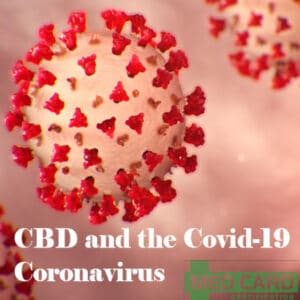

How CBD Helps Protect Neurons
CBD oil offers neuroprotective benefits. That is according to numerous scientific inquiries. Why do neurons need protection? And what medical conditions can result in neuron damage? In this post, we’ll talk about how hemp CBD oil might prevent, delay the onset of, and slow the progression of neurodegenerative conditions from diabetic neuropathy to Alzheimer’s, ALS, Parkinson’s, and much more.
Did you know that in addition to helping people relieve stress, get a good night’s sleep, and relieve pain, CBD oil also offers powerful neuroprotective properties? CBD’s neuroprotective effects have been documented via numerous lab experiments and human trials.
Neurons are the cells that make up the brain and central nervous system. If neurons are damaged in sufficient numbers, our cognitive and motor skills can be severely diminished. At their worst, neurodegenerative diseases can cause severe chronic pain, paralysis, dementia, and death.
Many experts are now convinced that daily CBD oil supplements might help to prevent or delay the onset of diseases such as Alzheimer’s, Parkinson’s, and ALS. And if one does contract one of these conditions, CBD oil might help to slow the progress of the disease, reduce the severity of symptoms, and improve quality of life.
What causes neurodegeneration?
Several medical conditions can cause nerve damage.
Neurodegenerative diseases
The term “neurodegeneration” essentially means progressive damage to neurons in the brain and central nervous system. Neuron damage can result in loss of motor functions (as with ALS and Parkinson’s), mental decline (as with Alzheimer’s disease), and seizures (as with epilepsy). Tragically, at this time, there are no known cures for these insidious conditions.
Diabetic neuropathy
Neuropathy is one of the many debilitating complications of diabetes. Diabetic neuropathy usually manifests in the nerves of the legs and feet. However, over time it may affect all neural pathways, creating numbness, tingling, and sharp pain. It can also lead to blindness. Sadly, neuropathic symptoms may not be noticeable until there is severe irreversible nerve damage.
Covid Brain Fog
Many survivors of COVID-19 are experiencing brain-related symptoms long after recovering from the virus. Some survivors are suffering from cognitive issues, including dizziness, memory loss, and confusion. This condition has been dubbed “Covid brain fog.”
According to some medical professionals, inflammation of blood vessels in the brain is believed to be the main culprit behind this condition. Dr. Serena Spudich of the Yale School of medicine postulates that certain compounds produced due to inflammatory effects “can also be toxic, particularly to the brain,” as they release an invasive immune response. This can cause the human immune system to mistakenly attack neurons.
How does CBD protect neurons?
The resinous and aromatic flowers of the cannabis plant produce a group of active compounds called cannabinoids. The most famous of these is THC, the intoxicating cannabinoid found in marijuana. However, another cannabinoid known as cannabidiol, or CBD, is non-intoxicating and is responsible for many of the medicinal benefits attributed to cannabis.
Recent research supports the theory that CBD may conceivably shield the body from environmental toxins and stressors. Moreover, cannabinoids may reduce the inflammation that can damage neurons. CBD may also promote neuron growth.
Anecdotal, clinical, and laboratory evidence is growing in favor of cannabinoids as a viable treatment for neurodegenerative diseases. Research also supports CBD’s ability to ward off the effects of covid brain fog.
Studies on CBD as a neuroprotectant
Below are just a few examples of the studies that have been undertaken on this issue. Links to many of these and other studies can be found at the end of this article.
CBD for neurodegenerative diseases
- Cannabinoids may facilitate anti-oxidative actions as well as neuroprotection, according to an early study by Dr. Sanchez-Ramos. The doctor theorizes that cannabinoids may potentially “slow the onset and progression of neurodegenerative conditions.”
- In a research review from 2012, Dr. Andras Bilkei-Gorzo reported: “At first sight, it is striking that cannabinoid agonists, substances known to impair cognitive functions, could be beneficial in neurodegenerative cognitive disorders. However, cannabinoid receptor activation could reduce oxidative stress and excitotoxicity, suppress neuroinflammatory processes and thus alleviate the symptoms of neurodegenerative motor and cognitive diseases.”
- The British Journal of Pharmacology, in a review from March 2014 concluded that “modulating the endogenous cannabinoid system is emerging as a potentially viable option in the treatment of neurodegeneration.”
- The American Academy of Neurology reported in August 2015, an evidence-based systematic review highlighting cannabinoids’ potential efficacy in the treatment of neurological diseases. Research showed that cannabis, when administered in randomized, controlled trials demonstrated the potential to reduce central pain associated with MS, as well as the ability to lessen spasticity and painful spasms.
- A study from 2012 showed that rats developed a neuroprotective response after ingesting cannabinoids. The cannabinoids appeared to aid in the healing of damaged neurons. This outcome suggests the possibility of cannabinoid’s role as a neuroprotectant.
CBD for diabetic neuropathy
The efficacy of CBD and other cannabinoids in the treatment of diabetic neuropathy has been the subject of several studies:
- A study from 2010 showed a significant reduction in pain and improved sleep patterns when cannabinoids were administered three times a day, five days a week.
- In 2013, research comparing standard pain treatments to the efficacy of cannabinoids, indicated that in medium dosages, cannabinoids effectively relieved neuropathic pain.
- The Journal of Pain published a study in 2016 and reported that ingestion of vaporized marijuana drastically reduced pain in patients with spinal cord injuries.
- In a 2010 experiment, diabetic mice were treated with cannabinoids. The outcome of the study suggested that cannabinoids may offer neuroprotection and preventative benefits if administered at the onset of diabetes
- Cannabinoids are also believed to relieve neuropathic pain when compared to a placebo, according to a 2008 study. One of the authors of the study theorized “this study adds to a growing body of evidence that cannabis may be effective at ameliorating neuropathic pain and may be an alternative for patients who do not respond to or cannot tolerate other drugs.”
A clinical study, consisting of 16 patients suffering from diabetic neuropathy took place in 2015. The patients were asked to rate their pain on a scale of 1 to 10 after receiving either a placebo or cannabinoids. The cannabinoid patients reported between a 64-70% reduction in pain, and the placebo group reported a 53% reduction.
Many of the beneficial properties of CBD have been cited in the British Journal of Clinical Pharmacology.
How is CBD used as a neuroprotectant?
Several types of products are made with CBD including multiple delivery methods and an array of formulations. Some products contain extracts of hemp flowers while others contain concentrated hemp extracts or even purified CBD.
Products made with extracts and concentrates contain oily aromatic compounds known as terpenes — aromatic oils that give cannabis its distinctive aroma — which are also known to provide medicinal benefits.
Purified CBD is odorless and flavorless and is ideal for use in topical preparations and edibles.
There are a handful of products that are used to treat neurodegenerative conditions.
CBD-rich hemp flower looks and smells exactly like marijuana but doesn’t cause a high. Moreover, hemp flower can be used in all the same ways as marijuana. It can be smoked, vaporized, and used in cooking.
CBD oil is actually a mixture of hemp flower extract and a carrier oil such as coconut or hemp seed oil. CBD oil can also be made with purified CBD. Since all terpenes provide different effects, CBD oils made with purified CBD are more predictable than those made with broad-spectrum CBD oil extracts. CBD oil is typically sold in dropper bottles for accurate dosing. It can be used sublingually (under the tongue) or it can be added to foods. CBD oil can also be used externally.
CBD-infused edibles and CBD oil capsules can be made using the same formulations as CBD oil. Some are made with a broad-spectrum extract while others are made with purified CBD. Edibles, although they have a longer onset time than smoking, vaping, and tinctures, provide longer-lasting effects.
CBD-infused topicals such as skin creams, balms, and ointments are generally used by those suffering from diabetic neuropathy as they can be applied directly at the site of pain.
CBD patches generally contain purified CBD. These products are ideal for patients with severe motor degeneration as they can be easily applied to the skin by a caregiver.
Products produced with CBD derived from hemp can be purchased by anyone without a medical marijuana card.
What is the ideal dosage of CBD?
When using CBD as a health supplement, depending on body size, 10 to 25 milligrams per day is sufficient. If a patient has trouble sleeping or feels lethargic during the daytime, CBD should be taken at night before bedtime. If a patient suffers from anxiety CBD might be better when taken during the daytime.
When using CBD to treat a serious condition such as Alzheimer’s or ALS, patients are urged to get the advice of a qualified healthcare provider. Although CBD can be well tolerated in high dosages, beyond a certain dosage the effects taper off. When taken in excessively high dosages, patients are usually wasting money.
With any herbal remedy, it’s always best to start with the lowest possible dosage and work up from there.
If no unwanted effects are experienced dosage can be increased over the course of a few days. Always read the instructions that come with the packaging material.

Sign Up for Medical Cannabis Today!
For potential patients, if you’re ready, we make it easy to connect with a medical marijuana doctor nearby or online. If you are interested in getting certified, please fill out the MMJ patient registration form below and press submit to get started. See if you qualify today!

MedCard Registration Form


Medical Marijuana Links:
Sources And Additional Reading:
- From Cannabis sativa to Cannabidiol: Promising Therapeutic Candidate for the Treatment of Neurodegenerative Diseases
- A Systematic Review of the Effectiveness of Medical Cannabis for Psychiatric, Movement and Neurodegenerative Disorders
- The endocannabinoid system in targeting inflammatory neurodegenerative diseases
- A molecular link between the active component of marijuana and Alzheimer’s disease pathology
- Prevention of Alzheimer’s disease pathology by cannabinoids: neuroprotection mediated by blockade of microglial activation
- Cannabidiol and (-)Delta9-tetrahydrocannabinol are neuroprotective antioxidants
- Survey on cannabis use in Parkinson’s disease: Subjective improvement of motor symptoms
- The Endocannabinoid System: A Putative Role in Neurodegenerative Diseases
- Cannabis (Medical Marijuana) Treatment for Motor and Non–Motor Symptoms of Parkinson Disease: An Open-Label Observational Study
- Cannabidiol: A Promising Drug for Neurodegenerative Disorders?
















